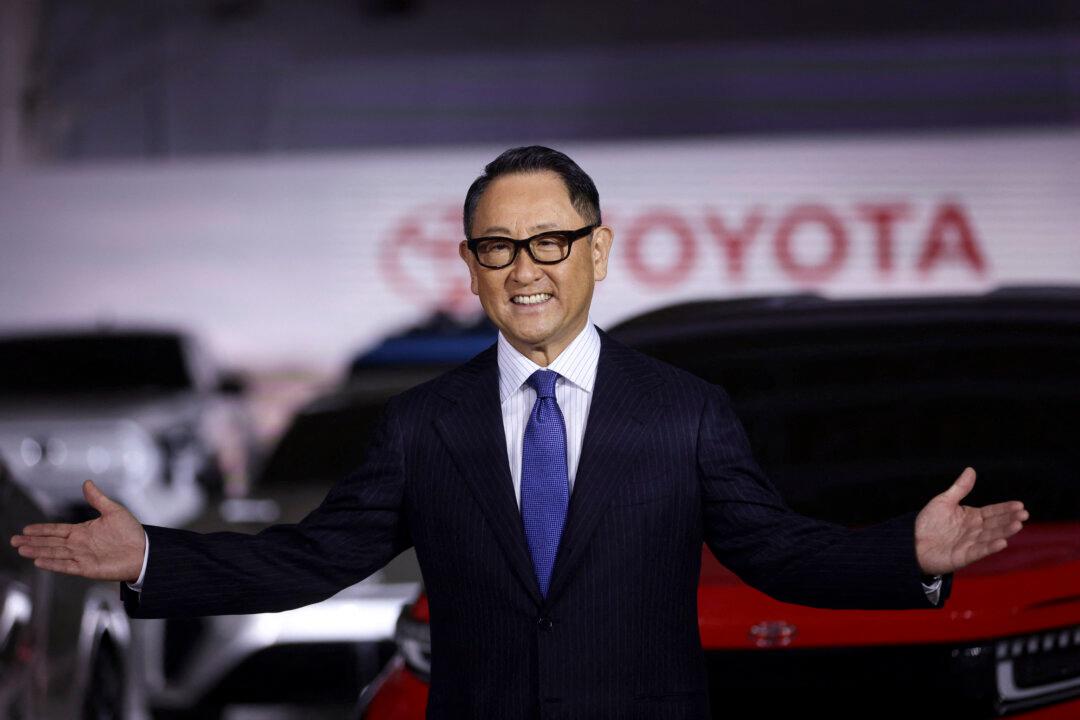Toyota’s chairman and former CEO, Akio Toyoda, said that fully electric vehicles (EV) will never manage to capture more than a third of the market and that governments shouldn’t push them on a reluctant public.
Mr. Toyoda made the remarks during a Jan. 23 company Q&A session, in which he said that peoples’ individual choices—and not regulations or taxpayer-funded subsidies—should be what drives EV adoption.





